Economy
SWIFT network:
-
- Context: BRICS is challenging SWIFT.
- SWIFT stands for Society for Worldwide Interbank Financial Telecommunication.
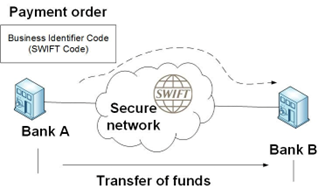
-
- Established: 1973; Headquarters: La Hulpe, Belgium.
- Nature: A global messaging network that enables secure and standardized communication between banks and financial institutions for cross-border transactions.
- Members: Over 11,000 institutions in more than 200 countries.
- Function: It does not transfer money but transmits payment instructions between banks.
- India’s link: The Reserve Bank of India (RBI) and major Indian banks are members.
- Significance: Plays a crucial role in global financial connectivity and is often used for imposing economic sanctions (e.g., exclusion of Russian banks in 2022).
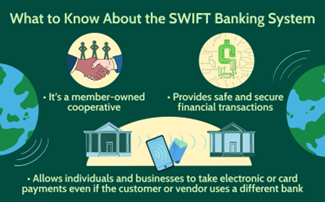
(TH)
Geography, Mapping, Ecology & Environment
Bioindicator:
-
- Context: Mussels are being used as bioindicators to monitor microplastic and chemical pollution during a mission in the Saronic Gulf, Greece.
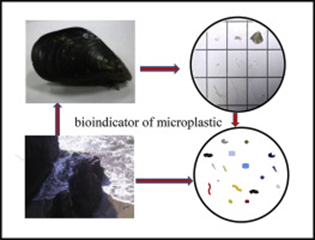
-
- Bioindicators provides information about the health of an environment by reacting to changes caused by pollution or other disturbances.
- Changes in their population, behavior, or physiology can signal environmental problems, making them useful for monitoring the impact of human activities and the overall state of an ecosystem.
- Examples include lichens for air quality or plankton for water quality.
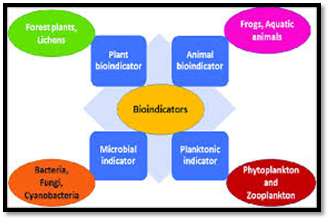
(TH)
CITES Convention on International Trade in Endangered Species of Wild Fauna and Flora):
-
- Context: A committee of CITES has recommended that India’s wildlife authorities pause the issue of permits that allow endangered animals to be imported by zoos, and wildlife rescue and rehabilitation centres.
- Adopted: 1973; Came into force: 1975.
- Aim: To ensure that international trade in wild animals and plants does not threaten their survival.
- Headquarters: Geneva, Switzerland.
- Nature: It is a legally binding international agreement, but it does not replace national laws.
- Appendices:
1. Appendix I: Species threatened with extinction — trade is generally prohibited.
2. Appendix II: Species not yet threatened but trade is regulated.
3. Appendix III: Species protected in at least one country that seeks cooperation from others.
-
- India: A Party since 1976; CITES is implemented through the Wildlife (Protection) Act, 1972.
- Administered by: UNEP (United Nations Environment Programme).
(TH)
Compensatory Afforestation Fund Management and Planning Authority (CAMPA):
-
- Established: 2004 (ad-hoc body) under the Supreme Court’s direction to manage funds for compensatory afforestation.
- Statutory status: Granted through the Compensatory Afforestation Fund Act, 2016 (came into force in 2018).
- Objective: To ensure effective management and utilization of funds collected for compensatory afforestation, catchment area treatment, and wildlife protection.
- Funds: Collected from user agencies (like industries) that divert forest land for non-forest purposes.
- Structure:
- National CAMPA (N-CAMPA): At the central level — frames policy and guidelines.
- State CAMPA (S-CAMPA): Implements afforestation and related activities.
- Nodal Ministry: Ministry of Environment, Forest and Climate Change (MoEFCC).
(TH)
Terms in news
Pig butchering:
-
- A cyber-enabled financial scam where fraudsters build long-term emotional or romantic relationships with victims online to gain their trust before defrauding them.
- Name origin: Derived from the idea of “fattening the pig before slaughter” — scammers “nurture” victims before stealing large sums.
- Modus operandi: Usually begins on social media or dating apps; victims are lured into fake investment or cryptocurrency schemes.
- Global concern: Originated mainly from Southeast Asia; now a transnational cybercrime.
- India’s link: Reported rise in such scams targeting Indian citizens through fake trading apps and messaging platforms.
(TH)
Personalities in news
Guru Nanak Dev Ji:
-
- Context: 556th Prakash Purab on 5th November 2025.
- Born: 1469 at Talwandi (now Nankana Sahib, Pakistan).
- Founder: of Sikhism and the first Sikh Guru.
- Teachings: Emphasized oneness of God, equality, truth, honest living (Kirat Karo), sharing with others (Vand Chakko), and meditation on God’s name (Naam Japna).
- Rejected: Caste system, ritualism, and superstitions.
- Composed hymns: Many included in the Guru Granth Sahib.
- Major travels (Udasis): Spread his message across India and abroad.
- Death: 1539 at Kartarpur Sahib (now in Pakistan).
- Important celebration: Guru Nanak Jayanti or Gurpurab, marking his birth anniversary.
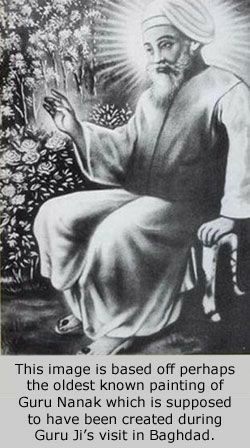
(TH)
Captions and Quotations
Ethics:
-
- “Ethical and behavioural training on how men should treat women with respect” must be a vital part of education, stated by SC.
(TH)
Important data/facts
Geography & Environment
-
- 2011 Census, 74.54 lakh migrants from Bihar are spread across the rest of India.
PRACTICE MCQ’S
Q1. Consider the following statements regarding CITES:
1. CITES is a legally binding treaty that aims to ensure that international trade in wild species does not threaten their survival.
2. In India, CITES is implemented through the Environment (Protection) Act, 1986.
Which of the statements given above is/are correct?
a) 1 only
b) 2 only
c) Both 1 and 2
d) Neither 1 nor 2
Answer: A
Explanation: Statement 1 is correct. Statement 2 is incorrect because in India, CITES is implemented through the Wildlife (Protection) Act, 1972, not the Environment (Protection) Act, 1986.
Q2. Consider the following statements regarding the SWIFT Network:
Statement I: The exclusion of certain countries from the SWIFT network can significantly impact their international trade and financial transactions.
Statement II: It acts as a global messaging system that securely transmits payment instructions between banks.
Statement III: It directly handles and transfers the funds involved in international transactions.
Which one of the following is correct in respect of the above statements?
a) Statement I is correct but only one of them explains Statement I
b) Statement I is incorrect but both Statement II and Statement III are correct
c) Statement I is correct but neither Statement II nor Statement III is correct
d) Both the Statements II and III are correct and together they explain Statement I
Answer: A
Explanation:
Statement I is correct: Exclusion from SWIFT affects a nation’s ability to conduct global transactions.
Statement II correctly explains it: SWIFT enables secure financial communication between banks.
Statement III is incorrect: SWIFT does not transfer money; it only sends messages/instructions.
Q3. Consider the following statements regarding the Compensatory Afforestation Fund Management and Planning Authority (CAMPA):
1. It was established to manage funds collected from industries and user agencies that divert forest land for non-forest purposes.
2. The Compensatory Afforestation Fund Act, 2016 made CAMPA a statutory body under the Ministry of Environment, Forest and Climate Change.
Which of the statements given above is/are correct?
(a) 1 only
(b) 2 only
(c) Both 1 and 2
(d) Neither 1 nor 2
Answer: C
Explanation:
Both statements are correct: CAMPA manages funds for afforestation and related activities, and it became statutory through the Compensatory Afforestation Fund Act, 2016 under MoEFCC.
Q4. “Pig Butchering” scam, often in the news, refers to:
a) A cyber-enabled financial fraud where victims are emotionally manipulated before being defrauded through fake investment schemes.
b) An illegal practice of mass slaughtering of pigs for meat trade in unregulated markets.
c) A method of animal husbandry involving selective breeding of pigs for commercial purposes.
d) A traditional ritual in Southeast Asia involving ceremonial pig slaughter.
Answer: A
Explanation:
The term refers to online scams where fraudsters “fatten” victims emotionally and financially before “slaughtering” them financially, often through fake crypto or investment schemes.
Q5. Consider the following statements regarding Guru Nanak Dev Ji:
1. He emphasized the principles of honest living, sharing with others, and remembrance of God’s name.
2. The hymns composed by him are compiled in the Adi Granth, also known as the Guru Granth Sahib.
Which of the statements given above is/are correct?
(a) 1 only
(b) 2 only
(c) Both 1 and 2
(d) Neither 1 nor 2
Answer: C
Explanation:
Both statements are correct: Guru Nanak Dev Ji’s core teachings are Kirat Karo, Vand Chakko, and Naam Japna, and his hymns form part of the Guru Granth Sahib, the holy scripture of Sikhism.
Spread the Word
The post Prelims Mantra – (05/11/2025) appeared first on Lukmaan IAS.